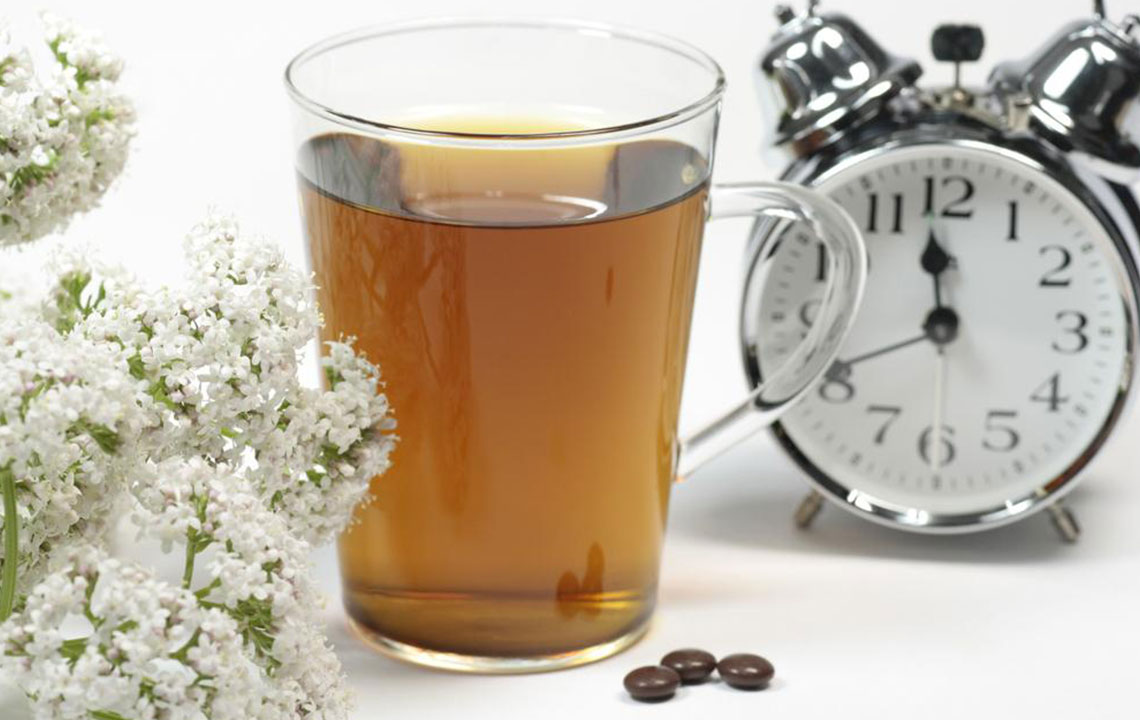Natural and Effective Strategies to Achieve Better Sleep Quality
Discover comprehensive natural strategies to improve sleep quality effectively. From dietary adjustments like tart cherry juice and warm milk to herbal remedies such as valerian root and lavender aromatherapy, this guide offers practical solutions to enhance your sleep. Incorporate habits like regular exercise and establishing bedtime routines to achieve deeper, more restful sleep naturally and safely. Ideal for those seeking sustainable sleep health methods without reliance on medications, ensuring overall wellness and improved daily functioning.

Natural and Effective Strategies to Achieve Better Sleep Quality
Sleep is an essential component of overall health and well-being, yet countless individuals around the world experience difficulties falling asleep or maintaining restful sleep. Chronic sleep issues not only impair daily functioning but also increase the risk of various health problems, including cardiovascular disease, diabetes, and mental health conditions. While prescription medications are sometimes prescribed, they often come with undesirable side effects and the risk of dependency. Therefore, exploring natural methods to improve sleep quality has become increasingly popular as a safer, sustainable alternative. This comprehensive guide discusses various natural strategies rooted in science and tradition that can help you enhance your sleep quality without relying on pharmaceuticals.
Many factors contribute to poor sleep, including stress, dietary habits, lifestyle choices, and environmental influences. Understanding these causes is fundamental to applying appropriate natural sleep strategies. Here, we delve into multiple effective approaches, including dietary adjustments, herbal remedies, behavioral practices, and environmental changes, all aimed at promoting better sleep naturally and safely.
Incorporate Tart Cherry Juice into Your Evening Routine
One of the most scientifically supported natural sleep enhancers is tart cherry juice. Rich in natural melatonin—the hormone responsible for regulating the sleep-wake cycle—tart cherry juice can serve as an effective dietary supplement for improving sleep quality. Consuming approximately half a cup of tart cherry juice about an hour before bedtime has been shown to increase blood melatonin levels significantly, leading to earlier sleep onset and longer sleep duration.
In addition to melatonin, tart cherries contain tryptophan, an amino acid that converts into serotonin—a neurotransmitter involved in mood regulation and relaxation—which then transforms into melatonin. This biochemical pathway helps synchronize your internal clock, making it easier to fall asleep and maintain restful sleep throughout the night. Incorporating tart cherry juice into your nightly routine is a simple, flavorful way to naturally support your sleep health.
Utilize Valerian Root as a Natural Sedative
Valerian root is a herbal remedy that has been used for centuries across different cultures to promote sleep and reduce anxiety. This plant’s roots contain compounds that act as mild sedatives, helping to calm the nervous system without the risks associated with pharmaceutical sleep aids. Valerian increases gamma-aminobutyric acid (GABA) levels in the brain—the primary inhibitory neurotransmitter that promotes relaxation and reduces neuronal excitability.
For optimal use, valerian can be brewed into a tea or taken in capsule form. Many people prefer the tea, as it provides a soothing bedtime ritual. Note that some might find valerian’s aroma or taste unpleasant, but capsules offer an alternative. Regular use over a few weeks can lead to noticeable improvements in sleep quality, although it's advisable to consult a healthcare professional before starting any herbal regimen, especially if you are on other medications or have underlying health conditions.
Experience the Benefits of Acupuncture
Ancient Chinese medicine practitioners have long used acupuncture to treat various conditions, including sleep disturbances. This technique involves inserting fine needles into specific points on the body to stimulate energy flow, called qi. When properly performed, acupuncture can help balance the body's internal energy, unblock stagnation, and promote relaxation, making it easier to fall asleep naturally.
Research indicates that acupuncture may influence the central nervous system, enhancing melatonin production and modulating stress hormones such as cortisol. Many individuals find that a series of acupuncture sessions can lead to improved sleep patterns, reduced anxiety, and a sense of well-being. If you're considering this approach, work with a licensed acupuncturist experienced in treating sleep issues to ensure safety and effectiveness.
Enhance Melatonin Production Through Diet
Ensuring adequate melatonin levels naturally is essential for healthy sleep cycles. Besides supplements, certain foods contain compounds that promote the body’s own production of melatonin. Incorporating these into your diet can support better sleep without relying on external supplements.
Cherries, especially tart varieties, are among the richest natural sources of melatonin. Bananas also contain small amounts of tryptophan and magnesium, which aid relaxation and melatonin synthesis. Other foods like oats, rice, and certain seeds contribute to maintaining stable blood sugar levels overnight, further supporting restful sleep. Consuming these nutrient-dense foods in the evening can create a conducive environment for sleep, aligning with your body's natural rhythms.
Regular Physical Activity Promotes Restful Sleep
Engaging in consistent exercise is one of the most effective natural strategies for improving sleep quality. Physical activity helps regulate your circadian rhythm, reduces stress, and alleviates symptoms of anxiety and depression—all of which can interfere with restful sleep. Moderate aerobic exercise like walking, cycling, or swimming for at least 30 minutes most days of the week can dramatically improve sleep satisfaction and duration.
It’s important to avoid vigorous exercise close to bedtime, as it may temporarily increase adrenaline levels and delay sleep onset. Instead, aim to complete your workout at least a few hours before bedtime to reap its sleep-promoting benefits. Incorporating regular physical activity into your daily routine can foster deeper, more restorative sleep, leading to better overall health and well-being.
Drink Chamomile Tea for Natural Relaxation
Chamomile has long been associated with calming effects and restful sleep. Its active compound, apigenin, binds to GABA receptors in the brain, exerting sedative effects that promote relaxation and ease anxiety. Drinking a cup of warm chamomile tea about 30 minutes before bed can help calm the mind, relax muscles, and prepare your body for sleep.
In addition to its sleep-promoting properties, chamomile tea can alleviate minor digestive discomforts that might otherwise disturb sleep. Its gentle, soothing nature makes it a popular choice among natural sleep aids. To maximize its benefits, use high-quality dried chamomile flowers and steep for about 10 minutes before consuming.
Experience the Sleep-Enhancing Power of Warm Milk
Warm milk has been a sleep aid for generations, a practice passed down through cultural traditions worldwide. The small amount of tryptophan in milk, combined with the psychological comfort of warmth, can trigger a sleep response. Drinking a glass of warm milk about 30 minutes before bed provides both biochemical and psychological signals to your body that it’s time to rest.
Additionally, the act of sipping warm milk creates a calming bedtime ritual that helps signal to your brain that sleep is approaching. For those with lactose intolerance or dairy sensitivities, plant-based alternatives fortified with similar nutrients can serve as suitable substitutes. Incorporating this simple habit into your nightly routine can contribute to improved sleep quality over time.
Relax with Catnip Tea for Gentle Drowsiness
Catnip, often associated with feline behavior, also has calming effects on humans. Containing nepetalactone, a compound that can induce relaxation and drowsiness, catnip tea is an unconventional but effective natural sleep aid for some people. Brewing a cup with honey before bed provides a soothing, aromatic beverage that encourages sleepiness.
While scientific evidence is limited, many users report a gentle sedative effect, making it an attractive option for those seeking gentle, herbal sleep remedies. As with other herbal teas, it’s best to consume in moderation and observe how your body responds.
Establish Consistent Sleep Routines and Bedtime Rituals
One of the most fundamental yet often overlooked natural sleep strategies is maintaining a regular sleep schedule. Going to bed and waking up at the same time every day helps regulate your circadian rhythm, leading to improved sleep efficiency and quality. Establishing relaxing pre-sleep rituals, such as taking a warm bath, practicing meditation, or engaging in gentle stretching, can signal to your brain that it’s time to wind down.
Limit exposure to screens and bright lights at least an hour before bed, as blue light suppresses melatonin production. Creating a consistent routine fosters a healthy sleep environment and helps reinforce your body’s natural sleep-wake cycle, resulting in deeper and more restorative sleep.
Utilize Lavender Aromatherapy to Promote Calmness
Lavender essential oil is renowned for its soothing aroma, which can significantly enhance sleep quality. Diffusing lavender in your bedroom, applying a few drops to your pillow, or using lavender sachets can create a calming environment conducive to sleep. Scientific studies show that inhaling lavender aroma reduces anxiety, lowers heart rate, and improves overall sleep quality.
In addition to its sleep benefits, lavender aromatherapy can improve mood and reduce stress during the day, supporting overall mental health. For best results, use high-quality pure essential oil and ensure good ventilation during diffusing. Making lavender a part of your nighttime environment can be a simple, natural way to foster better sleep habits.
In summary, improving sleep naturally involves a holistic approach that incorporates diet, herbal remedies, environmental modifications, and behavioral habits. By integrating these evidence-based strategies into your daily routine, you can significantly enhance your sleep quality in a safe and sustainable manner. Prioritizing natural sleep aids not only avoids the potential risks associated with medications but also promotes overall health and well-being.





